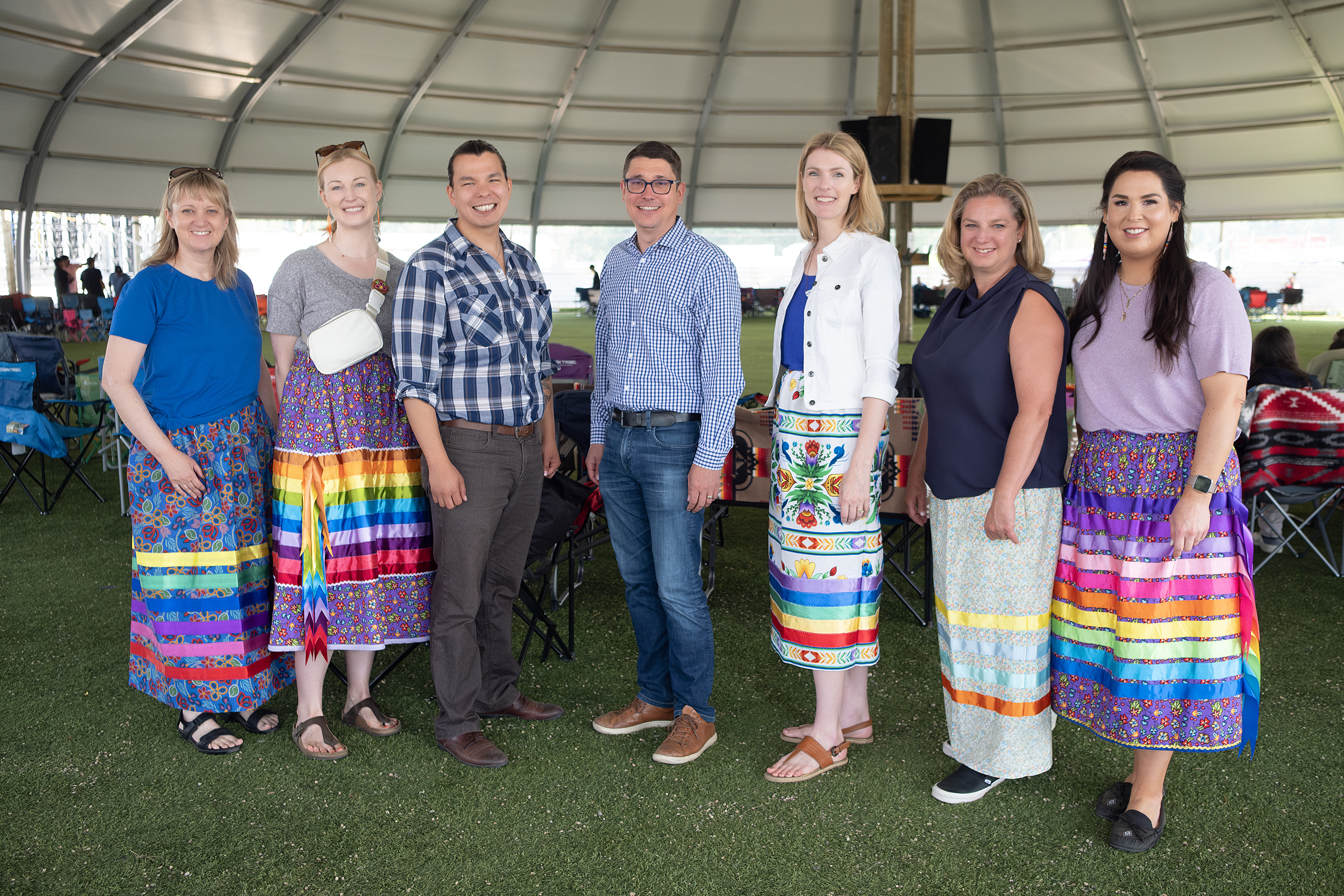
Addison says corporate responsibility is seeing a shift toward transparency

As sustainability continues to grow in importance to both the public and global governing bodies, organizations are having to adjust their strategies or risk being left behind.
Speaking to Lexpert, Jennifer Addison, Senior Vice-President, Sustainability, General Counsel and Corporate Secretary at EPCOR, says that in terms of corporate responsibility, we’re seeing a shift towards a more transparent way of working.

“The biggest trend that I see emerging is companies are identifying more acutely the areas where they can have the most material, positive impact. And at EPCOR, that’s certainly something we're taking onboard.”
A rapidly growing North American utility, EPCOR provides clean water and reliable energy to two million customers in communities across Canada and the United States. As such, remaining sustainable is a core component of their overarching company policy – especially important when it comes to growth.
"We're a growing company,” says Addison. “As we pursue our mandate for growth, we need to continuously assess how we can grow but in a way that supports a sustainable future for the communities we serve."
This perspective isn't just about ticking boxes for corporate responsibility; it's a fundamental aspect of EPCOR's value system, reflecting a deeper understanding of sustainability as an integral part of long-term business success. The challenges, however, in implementing effective sustainability practices are multifaceted. One of the key hurdles Addison highlights is the overwhelming influx of information labelled as “sustainable” or “ESG-related” that leaders in her position have to sift through.
"Everything purports to have a sustainability or ESG component to it that hits your inbox," she explains. “What I found helpful is to go back to what's most material to your business. What regulations do you need to keep on top of – or inform the development of – because it’s where your business can make the most impact?”
One of the key themes for Addison in the sustainability space is that of affordability – especially in the ongoing cost of living crisis. And while some people may not think affordability is a sustainability measure, Addison does not agree.
“When you're in the essential services business, making sure that people have bills that they can pay, making sure that communities can thrive because they're based on reliable and affordable infrastructure, that’s actually very much core to our sustainability platform,” she says. “Focusing mine and my team's attention on regulatory changes that will have an impact on affordability helps me screen out some of the things that might be less important to EPCOR as a business."
This targeted strategy helps Addison and her team concentrate on what truly matters to their business and stakeholders, ensuring that their efforts are not just symbolic but substantially beneficial.
Data management, particularly concerning sustainability metrics, emerges as another significant challenge. As Addison explains, the veracity, volume, and velocity of data represent a triad of complexities that sustainability teams must learn to navigate.
“We get a lot of requests externally to provide our data into other people's analysis of what's emerging in the sustainability space,” she says. “Getting multiple requests, for instance, from different stakeholders on what we're doing to manage GHG emissions – or the impact of regulatory changes – just so that everybody can keep apprised of what everybody else is doing in this space. Managing that data, making sure it's accurate...it's a challenge and an increasingly important part of the sustainability team’s work.”
And while the legal sustainability field comes with its challenges, it also has overwhelming benefits too. For instance, Addison cites one of EPCOR’s recent projects – the development of kīsikāw pīsim solar farm in Edmonton – as something she’s most proud of having been a part of.
“This project was years in the making,” she tells Lexpert. “It’s a very large farm – one of the largest of its kind behind the fence. And it’s situated on sensitive land – in the River Valley which is very important piece of the ecosystem here in Edmonton. It’s also sacred land for many of the First Nations who’ve travelled through and lived here since time immemorial.”
However, despite the sheer scale and complexity of the project, kīsikāw pīsim was an overwhelming success – a testament to EPCOR's commitment to improving their relationships with First Nations and Indigenous communities. And the collaboration with Enoch Cree Nation, which led to a memorandum of understanding and the gifting of a name for the solar farm – which means “daylight sun” in Cree– only goes to exemplify this.
“I’m very proud of the outcome, both for the project itself and as a continuous commitment to building deeper, stronger relationships with Indigenous peoples” Addison says. “Making sure that relationship focus that we have as a business in the future... will impact how the legal team practices and I think overall how EPCOR approaches the way that we work."
There’s an important intersection here, Addison goes on to say, between that legal expertise and a genuine passion for sustainability – the ability to create narratives is crucial in both fields.
“There's a lot of overlap that I find in the legal field and the sustainability field,” she explains. “And it comes back to your ability to build a compelling story. There are so many different interests in understanding what companies' commitments are to building a more sustainable future… reducing their environmental footprints [and] their commitments to build strong relationships. Often in the legal landscape, you're looking for those win-win opportunities in a negotiation or a difficult dispute – seeing if there's a path forward for all parties to come together and make something better that works for all sides. That's something I think lawyers can bring into the sustainability field – because not every project or every initiative, as much as you want to call it sustainable, actually is.”
This points to the risks of greenwashing and the need for authenticity in sustainability claims – something that can ruin the reputation of a company in a very short period. According to data from Zippia, 68 percent of US executives admit that their company is guilty of greenwashing – with 88 percent of Gen Z workers saying they don’t trust their company’s ESG claims.
It's skilled lawyers adept at presenting well-grounded, truthful narratives that are invaluable in this context. They help ensure that sustainability initiatives are not only labelled as such but are genuinely beneficial and sustainable. Meaning it genuinely is a win-win for everyone involved.
“Because this is where a lot of people get stuck, with greenwashing,” says Addison. “They’ve tried it, and they’ve stretched too much. But, if you’ve done your homework, and if you’ve really built a compelling story about why this matters, people will come with you.”